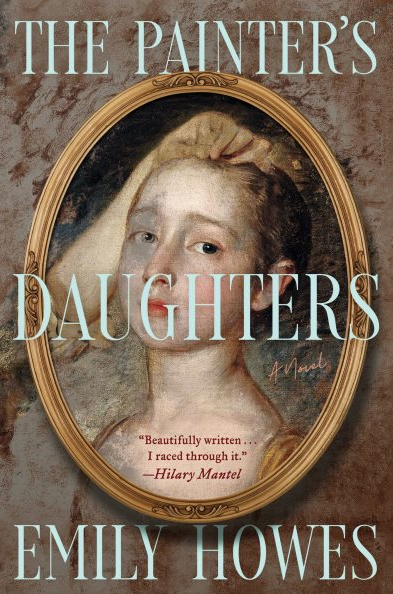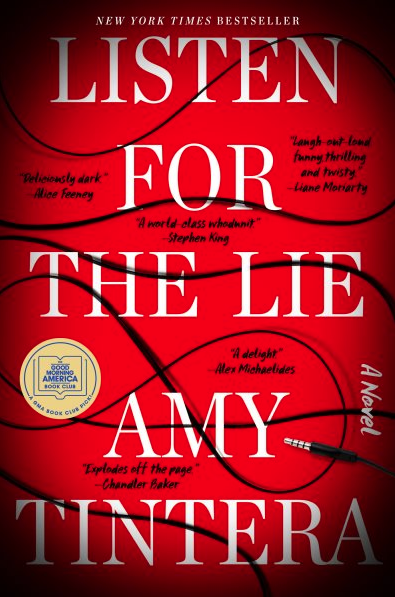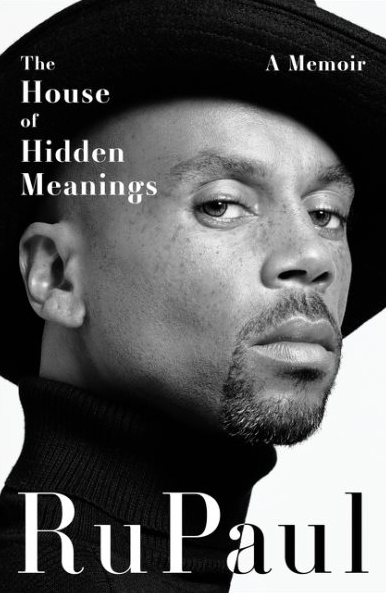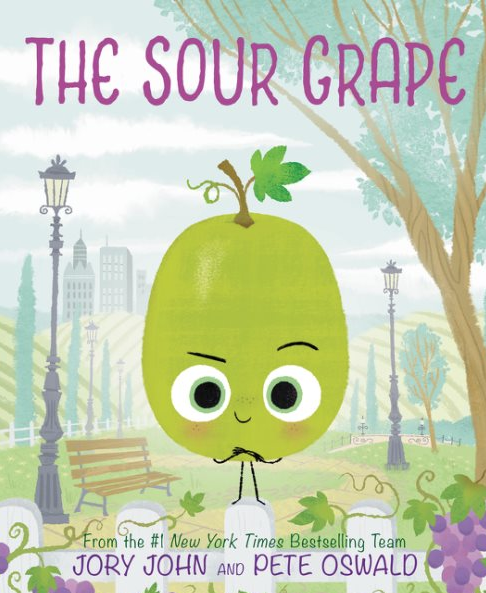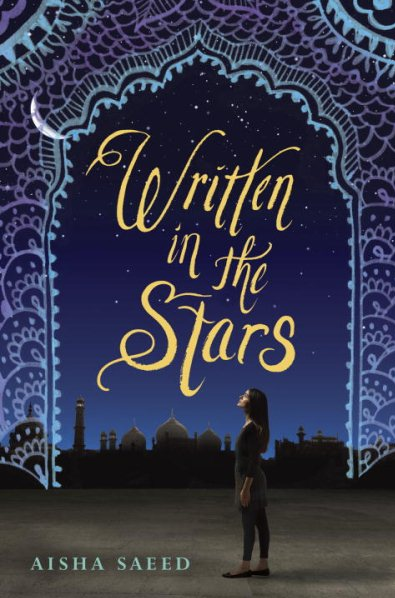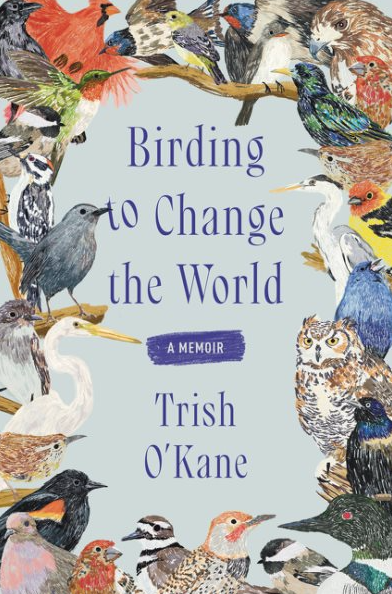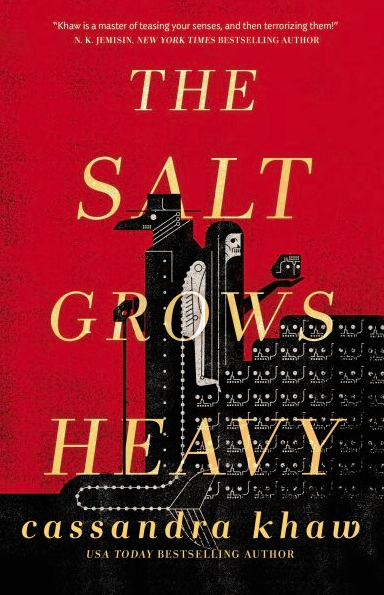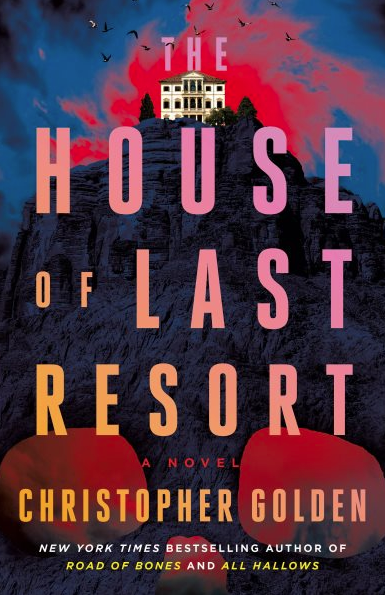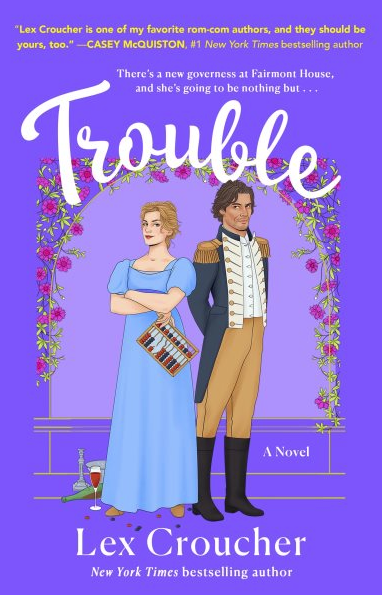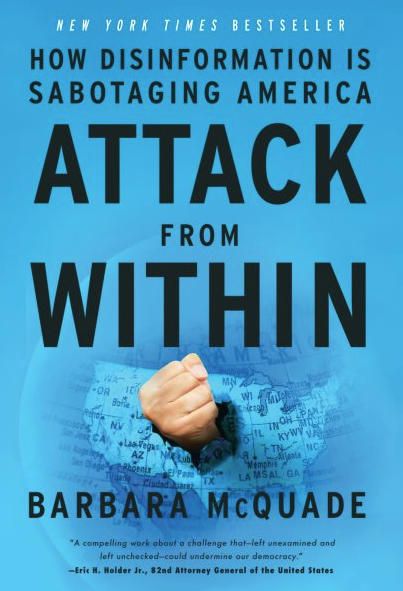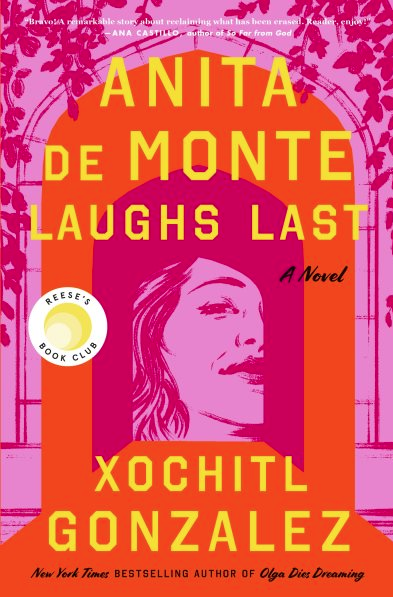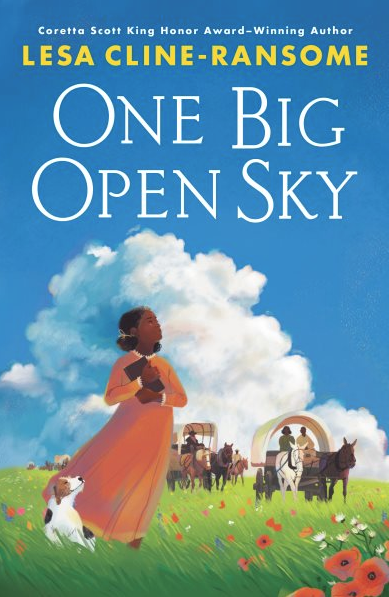List
Chez Bob
Bob Shea
Bob, a bright yellow alligator intent on laziness, thinks, “Maybe if I ask nicely, a bird will fly in my mouth and down into my belly.” When that comes to naught, he hits on the idea of opening a birdseed restaurant for birds—on his nose—and figures he’ll get rich franchising it (“I will have diamond teeth and a solid-gold hat!”). But Chez Bob becomes so popular that its avid avian following builds a town around the restaurant, and Bob, now the proverbial small business owner, finds himself a pillar of the community. When he finally has the opportunity to get his mouth around his feathered patrons and neighbors, he makes a new choice. Shea (Who Wet My Pants?) puts a fresh spin on the tale of a villain reformed by spoofing contemporary rhetoric around the communal good: as a “positive role model for the birds I’m going to eat,” Bob even coaches a local bird basketball team. Shea’s always-striking art has a marvelous lightness here, thanks to the bevy of bird characters and a cheery tropical palette, making for a book that’s funny and lovely to look at, too. Ages 4–8. Agent: Steven Malk, Writers House. (Aug.) --Staff (Reviewed 05/17/2021) (Publishers Weekly, vol 268, issue 20, p)
The Painter's Daughter
Emily Howes
Psychotherapist and sketch comedy writer Howes (The Ladies) portrays sisterhood, family secrets, and mental illness in her intricate and vibrant debut. The novel takes place in late-18th-century Ipswich, England, where as young girls, Peggy and Molly Gainsborough are given free rein by their emotionally absent painter father and corralled by their society-conscious mother. Molly’s bouts of sleepwalking, blackouts, and memory loss have been increasing in frequency, despite Peggy’s attempts to help her sister in an era when mental illness was viewed as witchcraft and loved ones were shipped to asylums. Terrified of separation, Peggy shoulders the burden of her sister’s episodes alone, a responsibility that becomes even heavier when the girls are 12 and 13 and the family moves to Bath, where they must make a good impression so their father can bring in customers for portraits. The novel is rife with secrets—including a past the sisters’ mother refuses to speak about, forbidden lovers, and the mysterious interwoven story of an innkeeper’s daughter and her abusive father—but the Gainsboroughs persevere through illness and betrayal. Though a rushed ending feels out of sync with the carefully laid details of the sisters’ lives, Howes excels in her depiction of truth and rumors. Readers will want to linger in this singular world. Agent: Andrianna Yeatts, CAA. (Feb.) --Staff (Reviewed 12/04/2023) (Publishers Weekly, vol 270, issue 50, p)
Listen for the Lie
Amy Tintera
YA author Tintera (The Q) makes her adult debut with the outstanding story of a young woman haunted by rumors that she killed her best friend. Five years ago, 20-something golden girl Savannah Harper was brutally murdered in her hometown of Plumpton, Tex. The same day, Savannah’s best friend, Lucy Chase, was discovered amnesia-stricken on the side of the road with her dress covered in Savannah’s blood. While Lucy was never charged with the murder, most of Plumpton has long assumed she’s guilty—and given the gap in her memory, Lucy has questions of her own. Now living in L.A., she’s fired from her investment job when the new season of hit true crime podcast Listen for the Lie renews public interest in Savannah’s case. Humiliated, Lucy accepts an invitation from her grandmother, Beverly, to return to Plumpton for a visit. When Lucy arrives in town, she finds Ben Owens, the charismatic host of Listen for the Lie, already poking around, and attempts to stay one step ahead of him as she pieces together the events of that fateful night. Tintera alternates transcripts of the podcast with chapters from Lucy’s perspective, getting a lot of mileage from her protagonist’s dry wit (“A podcaster has decided to ruin my life, so I’m buying a chicken,” goes the book’s first sentence) and some devilish plot twists. Readers will be hard-pressed not to wolf down this intelligent page-turner in a single sitting. (Mar.) --Staff (Reviewed 01/22/2024) (Publishers Weekly, vol 271, issue 3, p) and irreversibly linked.
The House of Hidden Meanings
RuPaul
RuPaul's memoir is the polar opposite of his breezy 1995 autobiography, Letting It All Hang Out. In this book, the drag superstar, Tony Award winner and 12-time Emmy winner, bares his soul about his dysfunctional family and the battles he has fought. He eloquently excavates old memories of growing up in San Diego with three sisters and a flinty and hot-tempered mother. Although he learned independence and self-sufficiency from his mother, she often told him (even when he was as young as five) that he was too sensitive and pensive. When his father left the family, his mother was bedridden for years. At 15, he moved in with one of his older sisters and her husband in Atlanta. By age 21, he had found supportive friends and experimented with non-glamorous, thrift-store drag items that were more punk than disco. After several attempts to live in New York City (often couch surfing or sleeping in parks), RuPaul reinvented himself and found success with the 1993 single "Supermodel (You Better Work)." VERDICT A probing, emotionally raw memoir that's an introspective examination of RuPaul's family and the issues he confronted before embracing self-love. --Kevin Howell (Reviewed 03/01/2024) (Library Journal, vol 149, issue 3, p108)
The Sour Grape
Jory John and Pete Oswald
A recovering curmudgeon narrates life lessons in the latest entry in the punny Food Group series.Grape wasn’t always sour, as they explain in this origin story. Grape’s arc starts with an idyllic childhood within “a close-knit bunch” in a community of “about three thousand.” The sweet-to-sour switch begins when Grape plans an elaborate birthday party to which no one shows up. Going from “sweet” to “bitter,” “snappy,” and, finally, “sour,” Grape “scowled so much that my face got all squishy.” Minor grudges become major. An aha moment occurs when a run of bad luck makes Grape three hours late for a meetup with best friend Lenny, who’s just as acidic as Grape. After the irate lemon storms off, Grape recognizes their own behavior in Lenny. Alone, Grape begins to enjoy the charms of a lovely evening. Once home, the fruit browses through a box of memorabilia, discovering that the old birthday party invitation provided the wrong date! “I realized nobody’s perfect. Not even me.” The remaining pages reverse the downturn as Grape observes that minor setbacks are easily weathered when the emphasis is on talking, listening, and working things out. Oswald’s signature illustrations depict Grape and company with big eyes and tiny limbs. The best sight gag occurs early: Grape’s grandparents are depicted as elegant raisins. The lessons are as valuable as in previous outings, and kids won’t mind the slight preachiness. (This book was reviewed digitally.)Sweet, good-hearted fun. (Picture book. 4-8) (Kirkus Reviews, September 15, 2022)
Written in the Stars
Aisha Saeed
Gr 9 Up — Naila is a Pakistani American high school senior. As the story opens, her greatest trouble is the risk of going to the prom with her high school sweetheart against the wishes of her protective and conservative parents. She does anyway, her parents find out, and their reaction is swift and extreme: the family departs immediately for Pakistan and negotiates an arranged marriage for Naila. Her impassioned struggle against the constraints of an arranged marriage is contrived in places, but it is a compelling story nonetheless. This is a cross-cultural eye opener; since Naila had never left the US until she was 18, her first-person account resonates in its explanations of the rituals, especially how they would look and feel from an American point of view. Yet the setting is pure Pakistani, with culturally rich descriptions of Naila's extended family, their cuisine, and strongly held beliefs. The prose is simple and straightforward. Although the book's hallmark is not text complexity, the spare prose is more evocative than stilted: Saeed shows rather than tells, allowing readers to imagine how Naila must feel. There is some violence and sex, both appropriate to the context and the age of the protagonist. A good choice for libraries looking to diversify their shelves.—Amy Thurow, New Glarus School District, WI --Amy Thurow (Reviewed December 1, 2014) (School Library Journal, vol 60, issue 12, p142)
Birding to Change the World: A Memoir
Trish O'Kane
In this affecting memoir, O’Kane (Guatemala in Focus), a natural sciences lecturer at the University of Vermont, elegantly weaves personal and natural history as she details how her fascination with birds compelled her to quit her journalism career, return to school at age 45 to get a PhD in environmental studies and become an ardent conservationist. Interspersed with O’Kane’s account of deciding to go back to school after observing the resilience of New Orleans sparrows in the wake of Hurricane Katrina are riveting details about how the birds likely followed humans out of Africa and were alternately treated with admiration (the first sparrows were brought to the U.S. in 1850 because “European immigrants simply missed” them) and contempt (extermination campaigns from the 1700s through the 1930s collectively killed hundreds of millions). Opening on what she’s learned from birds, O’Kane writes that the eastern phoebe’s habit of nesting in bridges, sheds, and other human structures taught her that “the presence of our species doesn’t have to hurt other species.” Her reverence for her avian subjects comes through on every page, and she retains a journalist’s keen eye for detail: “The male cardinal reminded me of an Irishman, standing up to leave his pub at midnight, head held high and chest inflated as he sang his traditional a cappella goodbye song.” This soars. Illus. Agent: Barney Karpfinger, Karpfinger Agency. (Feb.) --Staff (Reviewed 12/18/2023) (Publishers Weekly, vol 270, issue 52, p)
American Spirits
Russell Banks
Banks’s elegant tryptic of novellas, arriving a year after his death at 82, evoke a hardscrabble Upstate New York setting reminiscent of his novels The Sweet Hereafter and Rule of the Bone. Each story touches on themes of community, family, and survival in small-town Sam Dent, N.Y., where hiking and hunting are prized and everyone knows one another. “Nowhere Man” starts with a minor confrontation between local hunter Doug and brusque businessman Yuri Zingerman, who owns property in the area but lives elsewhere. After Yuri tells Doug not to hunt on his land, Doug does so anyway, with his young son in tow. From there, the narrative steadily intensifies into a grudge match whose outcome on is both inevitable and devastating. “Homeschooling” follows the slow descent of Judith and Claire Weber, whose progressive parenting of their adopted children sets tongues wagging. After their neighbors grow concerned that the children are being neglected, the family edges to the brink of tragedy. The intimate and propulsive “Kidnapped” is a macabre tale about the Dent family that gave the town its name. Told in a wry and folksy first person, its tangled plot involves not only kidnapping but blackmail, murder, and a late night heart-to-heart over Double Quarter Pounders. As ever, the reader senses the confidence in Banks’s narrative voice. This is a welcome addition to the legacy of a master storyteller. (Mar.) --Staff (Reviewed 11/27/2023) (Publishers Weekly, vol 270, issue 49, p)
The Salt Grows Heavy
Cassandra Khaw
In this viciously dark fantasy, a horrific siren who can’t speak, thanks to a cruel husband who captured her and cut out her tongue, and a plague doctor who has watched the kingdom succumb to a plague impossible for them to stop leave their now-desolate city in search of a new adventure. When the two creatures stumble on a sinister cult of children who believe gods can resurrect them, their interest is piqued. But then, in the snow-covered, frigid forest, they meet the children’s gods, the kind of monsters who enjoy taking apart a child and stitching it back together, and the siren and the doctor realize that it will take quick thinking, sharp teeth, and a lot of courage to get out alive. This novella is short but action-packed, unctuous, and deliciously creepy, a mash-up of Angela Carter’s dark fairy-tale retellings and the poetic love story core of This is How You Lose the Time War by Amal el-Mohtar and Max Gladstone (2019). The book is overflowing with eerie body horror, sensory details of cold snow and warm blood, and terrifying monsters (both protagonists and villains). -- Leah von Essen (Reviewed 4/15/2023) (Booklist, vol 119, number 16, p30)
The House of Last Resort
Christopher Golden
Ghosts, demons, and crumbling catacombs make Golden's latest (after All Hallows, 2023) a spooky read that will compel readers to think twice before buying old real estate. Tommy and Kate move to a charming, almost-abandoned town in Sicily in search of new beginnings and a closer relationship to Tommy’s estranged grandparents. After accepting a once-in-a-lifetime deal on a beautiful house under the mayor's incentive to bring fresh blood to Becchina, they begin to notice suspiciously nervous locals, ever-increasing earthquakes, and strange noises in the middle of the night. Despite their attempts to make the most of their new surroundings, there’s a menacing force buried beneath a hidden past, but what is it and what does their home have to do with it? This new take on the exorcism tale adds spirits, desiccated corpses, and disgusting rats to the mix, making every page drip with terrifying imagery. It’s a great choice for avid horror fans, especially audiences looking for a fast-paced and detailed scary story similar to works by Thomas Olde Heuvelt and Jennifer McMahon. -- Verónica N. Rodríguez (Reviewed 12/1/2023) (Booklist, vol 120, number 7, p115)
Trouble
Lex Croucher
Croucher (Infamous) brings a wonderfully modern aesthetic to the Regency setting of this energetic and lighthearted romance. Millworker Emily Laurence intends to masquerade as her much more refined and compassionate sister Amy in the role of governess to the teen daughters of widower Captain Ben Edwards just long enough to make sure Amy doesn’t lose the position while recovering from an illness. She also hopes to steal a few things from the household along the way. Emily has her work cut out for her: her younger charge is a chatterbox desperate for attention, while the older sister is morose and prone to disappearing at the first provocation. Meanwhile, the rest of the small staff determinedly involves her in their socializing, the attractive Captain proves a strange mix of aloof and casually hands-on with running his household and raising his children, and a stranger in the local pub presses her for answers behind the Captain’s departure from the Navy. Croucher excels in building quirky, sympathetic characters and social dynamics which, even when antagonistic, brim with warmth and a familial feel. In incorporating the queerness of several of the characters, Croucher hits the right balance between an easy and accepting attitude within the Edwards household and a recognition of more general social censure typical of the era. A similar balance concerning class issues gives the eventual romance between Emily and the Captain just the right amount of tension. Fans of come-as-you-are romance will find this a delicious, and not too guilty, pleasure. (Mar.) --Staff (Reviewed 01/22/2024) (Publishers Weekly, vol 271, issue 3, p)
Attack from Within: How Disinformation Is Sabotaging America
Barbara McQuade
MSNBC legal analyst McQuade debuts with a concise introduction to the threat to American democracy posed by “the deliberate use of lies to manipulate people, whether to extract profit or to advance a political agenda.” She covers all aspects of disinformation, including its historical antecedents, the ways in which the human mind is susceptible to it, and the possibility that technological advances such as AI will exacerbate an already serious problem. McQuade makes clear that the phenomenon predated Donald Trump’s candidacy and presidency, quoting the Federalist Papers to show that the Founding Fathers were concerned about disinformation. Still, while McQuade notes examples from both sides of the political divide, the bulk of her critique is aimed at Trumpists, in particular for the 2020 election denialism that led to the January 6 insurrection. She remains cautiously optimistic about the future of American democracy and proposes logical if familiar actions to mitigate the harm of disinformation, such as holding social media more accountable for content on their platforms, strengthening local journalism, teaching media literacy, and restoring civics education to school curricula. Though there’s not much new here, it’s still a useful guide for those curious about the past and future of political disinformation. (Feb.) --Staff (Reviewed 12/11/2023) (Publishers Weekly, vol 270, issue 51, p)
Grief Is For People
Sloane Crosley
In this aching meditation on loss and friendship, essayist and novelist Crosley (Cult Classic) eulogizes her late literary mentor and best friend against the backdrop of the high-pressure publishing industry. At 25, Crosley applied for a job opening at Vintage Books. Russell Perreault, the then-37-year-old head of the paperback imprint’s publicity department, was charmed and offered her the job. When Crosley, who was hesitant to leave her current position at “a more commercial publishing house,” asked for a second interview, Russell shot back, “It’s like you’ve been admitted to Harvard but first you need a tour of the bathrooms.” From there, the two became fast friends as they faced down crises both minor and major, including the exposure of James Frey’s lies in his fictionalized 2003 memoir, A Million Little Pieces. By the 2010s, however, Russell’s light began to dim—Crosley stopped receiving invitations to his country house after his romantic life imploded, and changing workplace norms silenced his signature banter. On June 27, 2019, Crosley’s apartment was burglarized; exactly one month later, Russell died by suicide. Crosley elegantly links the two losses by explaining how her fevered desire to reclaim her burglarized items stood in for her inability to reclaim Russell. Her characteristically whip-smart prose takes on a newly introspective quality as she reinvigorates dusty publishing memoir tropes and captures the minutiae of a complicated friendship with humor and heart. This is a must-read. Agent: Jay Mandel, WME. (Feb.) --Staff (Reviewed 12/11/2023) (Publishers Weekly, vol 270, issue 51, p)
Anita de Monte Laughs Last
Xochitl Gonzalez
Gonzalez’s (Olga Dies Dreaming, 2022) sophomore outing deserves a mouse on her doorstep in gratitude. Anita, her spirited spirit protagonist, learns that mice make a nice appreciation gift from a wise reincarnated bat she meets in the Ceiba tree where she is spending her afterlife after her suspicious death in 1985; “artists . . . could become bats. But only for as long as their art was serving its purpose.” Anita’s murderer, husband and famed minimalist artist Jack Martin, has done all he can to squelch what's remembered of her art and her voice. In the late–1990s, Puerto Rican undergrad Raquel Toro begins a prestigious internship via affirmative action, making her ripe for manipulation and exploitation by her overprivileged boyfriend. Gonzalez weaves these three perspectives and two converging timelines together within the art worlds and academia of New York City, Providence (Brown University), Cuba, and Spain in four parts, ""Falling,"" ""Parties,"" ""Visits,"" and ""Retrospectives."" Anita’s passionate, thrilling voice—""Fast! Fast! Fast!""—drives the storylines to a felicitous collision. Inspired by and dedicated to artist Ana Mendieta in light of her tragic death, this is a brutal but ultimately heartwarming and certainly thought-provoking novel of Latinx magic, family, and feminine power. -- Sara Martínez (Reviewed 3/1/2024) (Booklist, vol 120, number 13, p19)
One Big Open Sky
Lesa Cline-Ransome
Three generations of Black women—young Lettie, her mother, and teacher Philomena—take turns narrating a challenging westward journey in this gripping historical verse novel, set in 1879. After learning about land that they can own and operate in Nebraska, Lettie’s stubborn but ambitious father urges the family to leave Mississippi; he believes that migrating west and living as homesteaders will provide them with better economic prospects. Traveling in small communities known as companies, Lettie and nine other families journey westward; during their expedition, they traverse turbulent rivers and encounter infectious diseases all while being mindful of their dwindling finances. Lettie’s pregnant mother tries to maintain morale among her children, but the relentless travel conditions begin to take a toll on her. Along the way, they meet Philomena, who offers herself—and her meager but needed capital—to Lettie’s family as a helping hand in exchange for safe passage west. Though the alternating perspectives are occasionally repetitive, through them, Cline-Ransome (Being Clem) depicts a harrowing tale. The novel’s slow-burn pacing and the meticulously layered intersections of each protagonist’s experience deftly capture the lengths to which Black people—particularly women—would go in pursuit of freedom in the post-Reconstruction era. Ages 8–12. (Mar.) --Staff (Reviewed 12/18/2023) (Publishers Weekly, vol 270, issue 52, p)atter movement.

